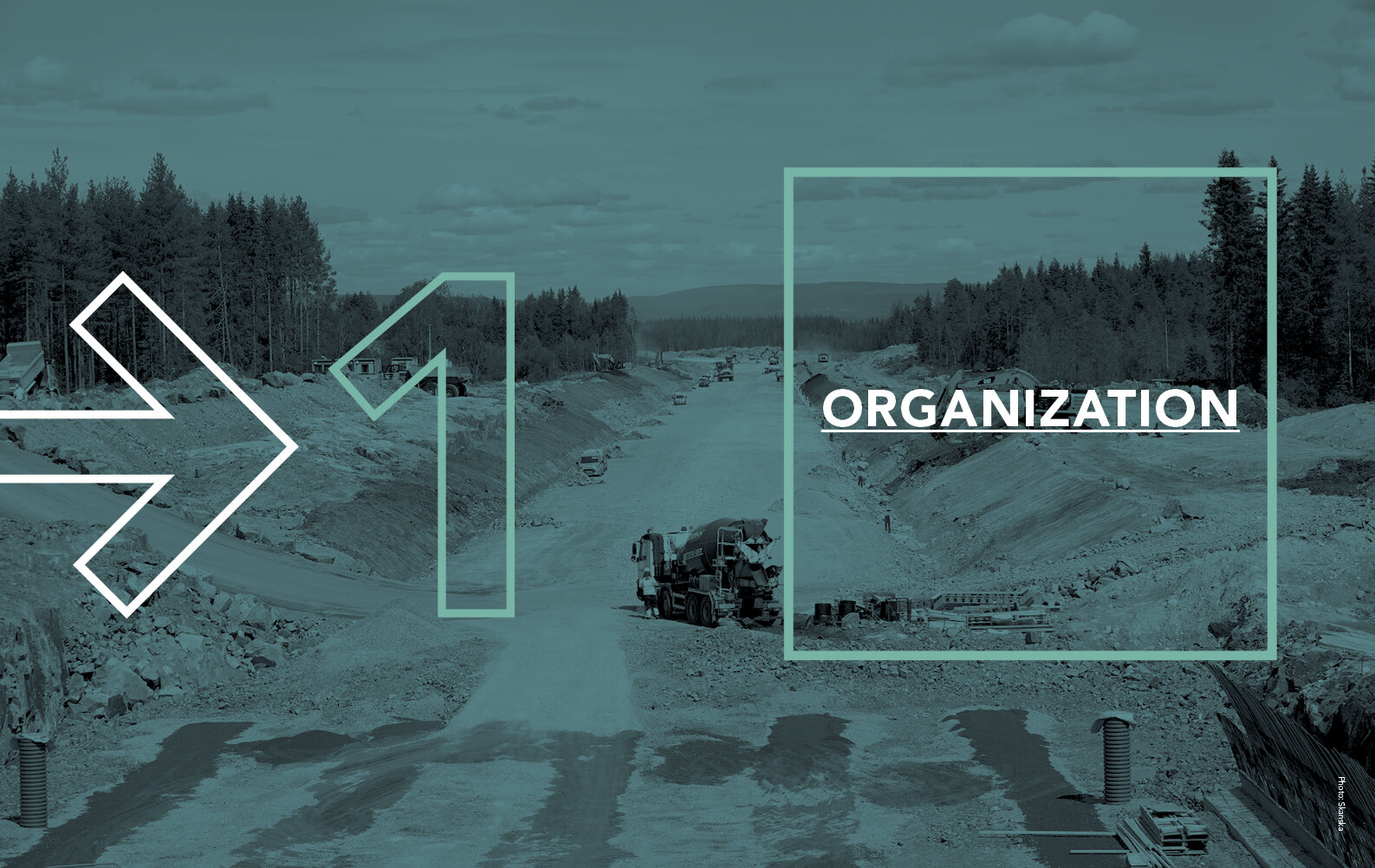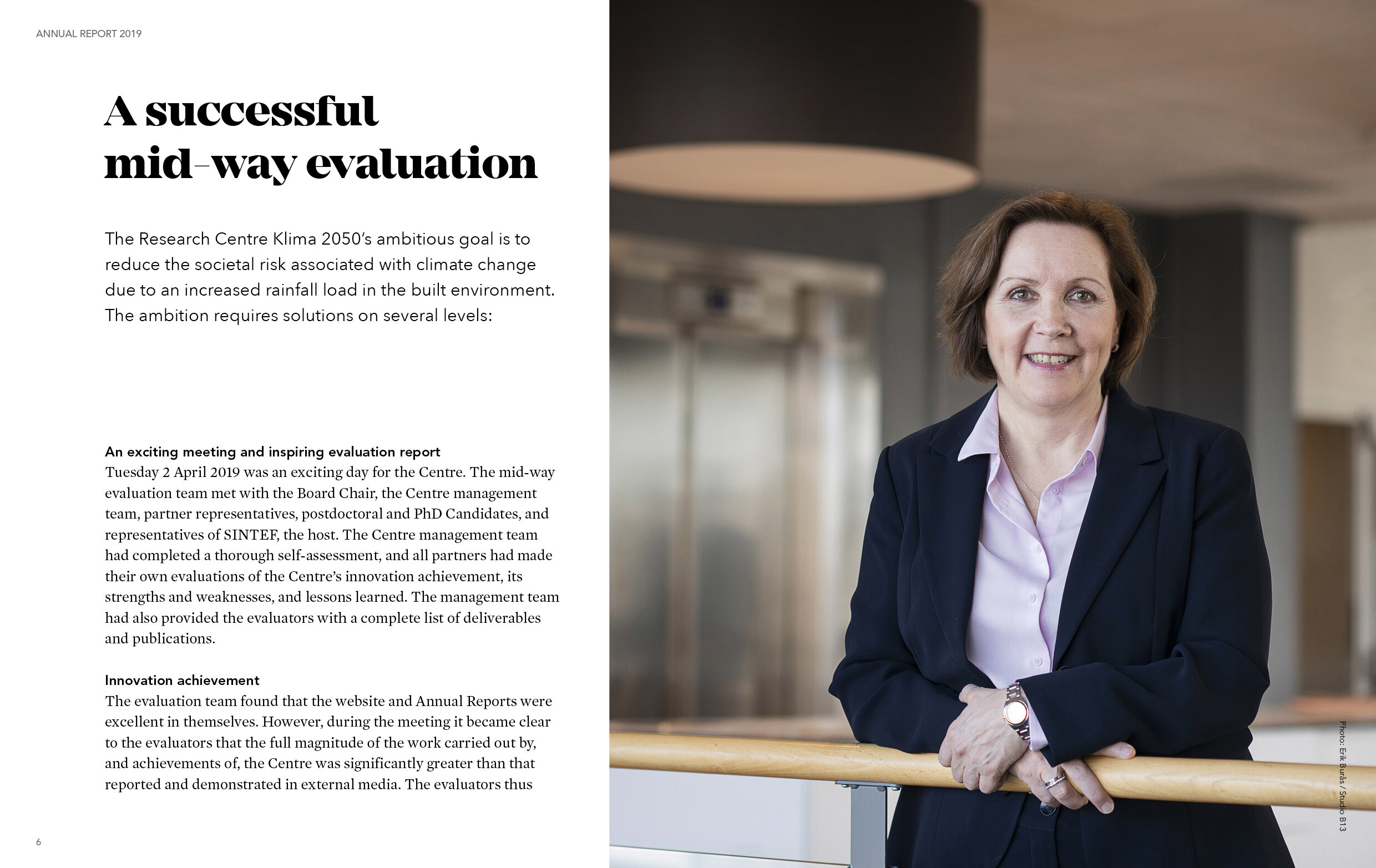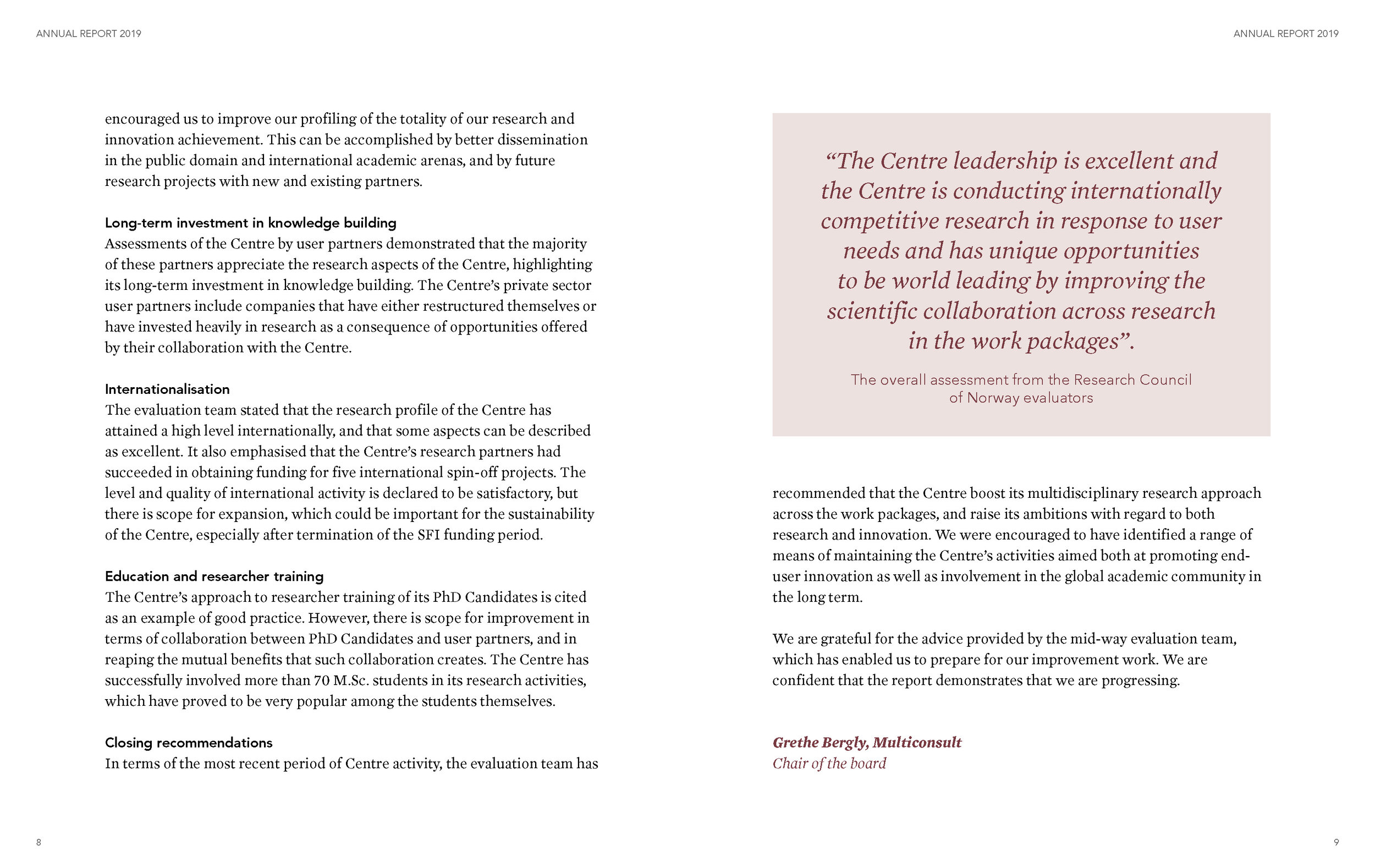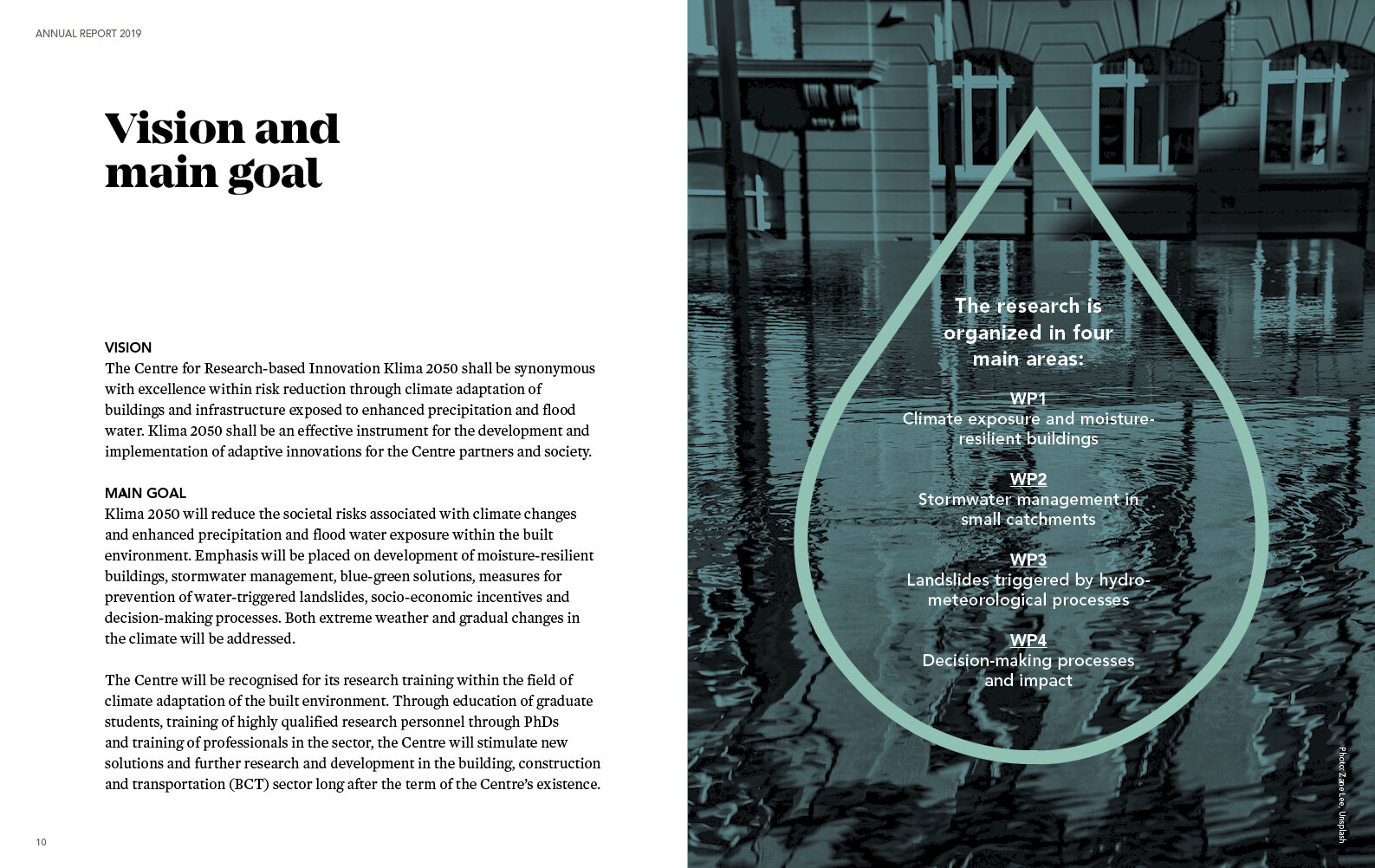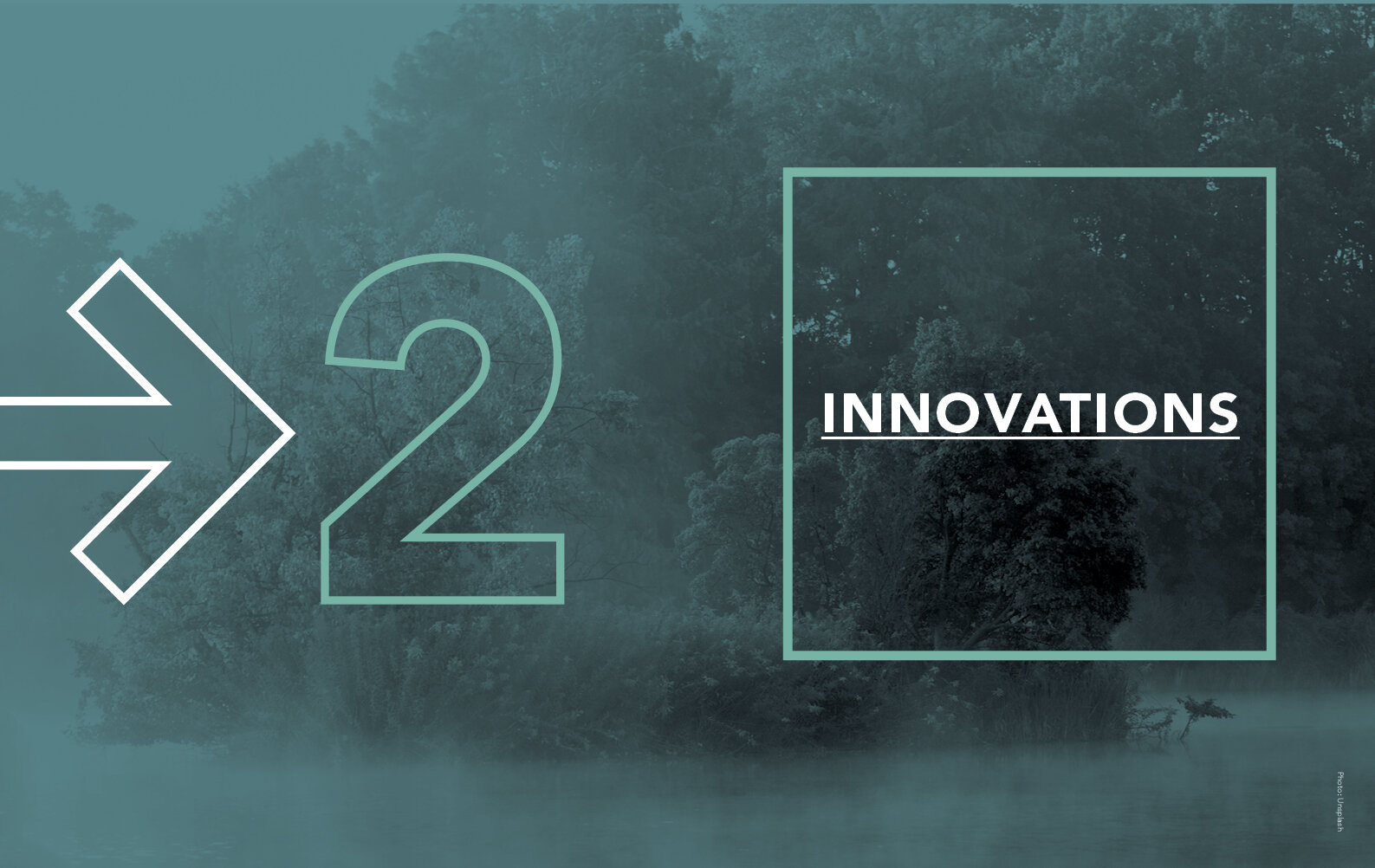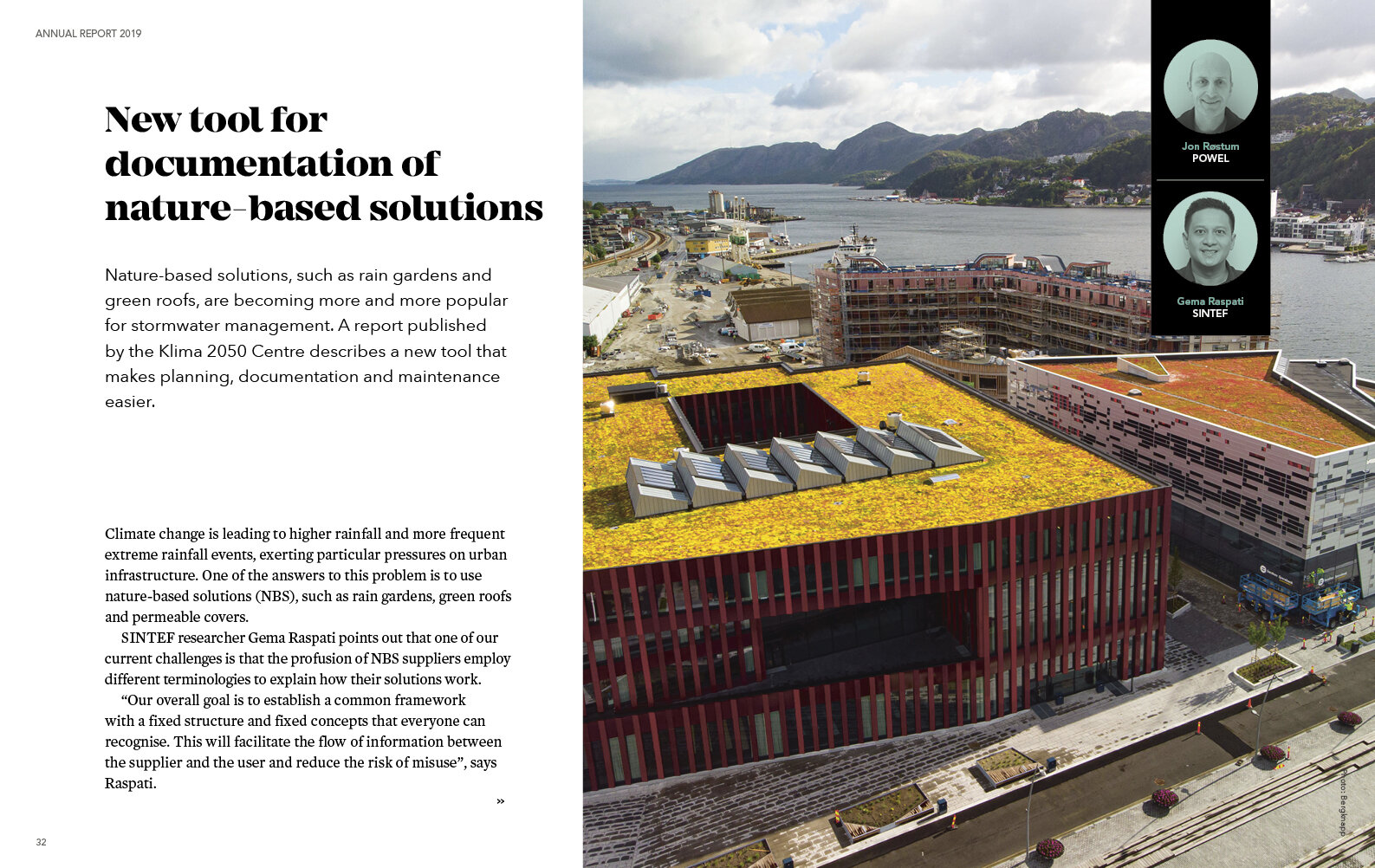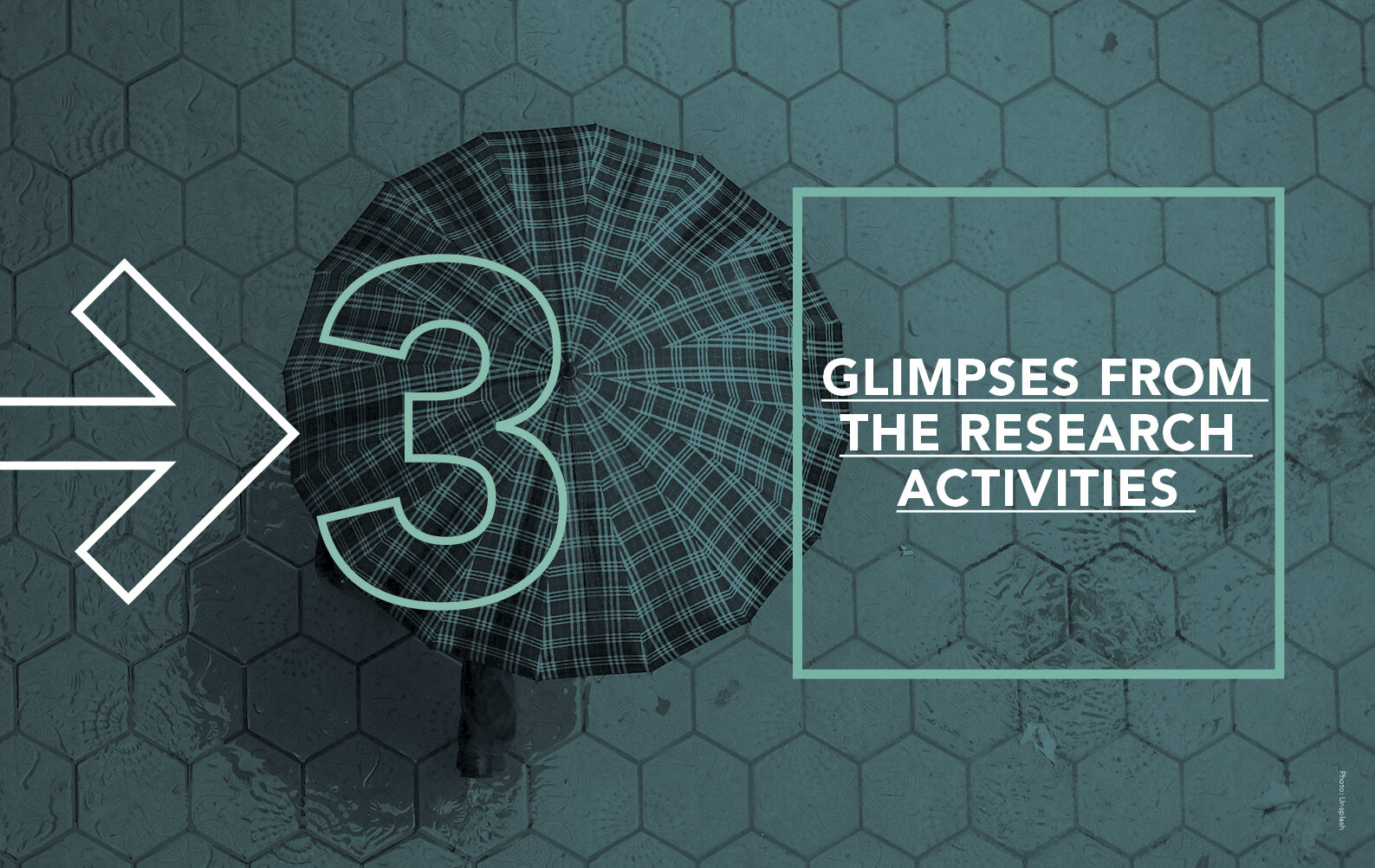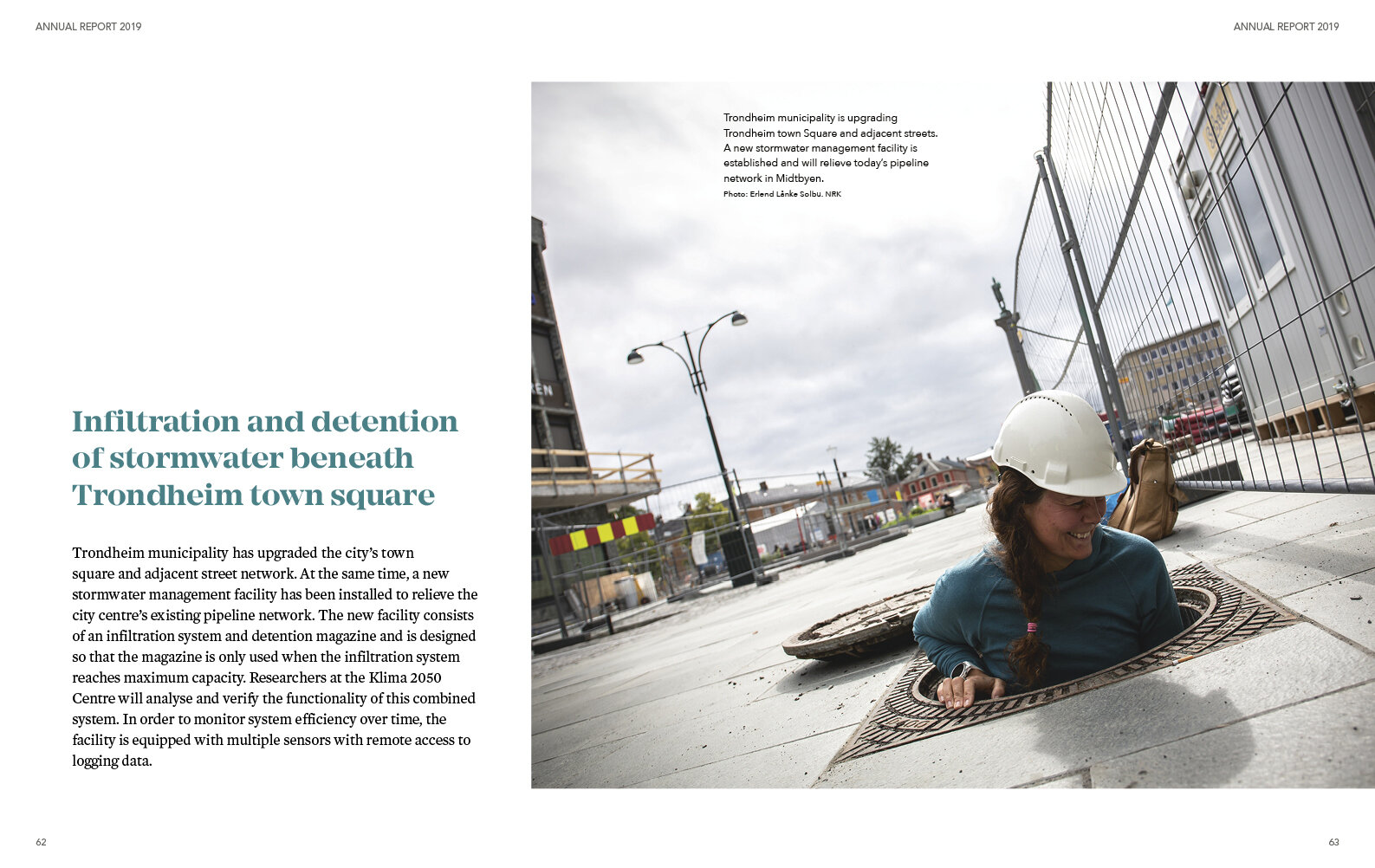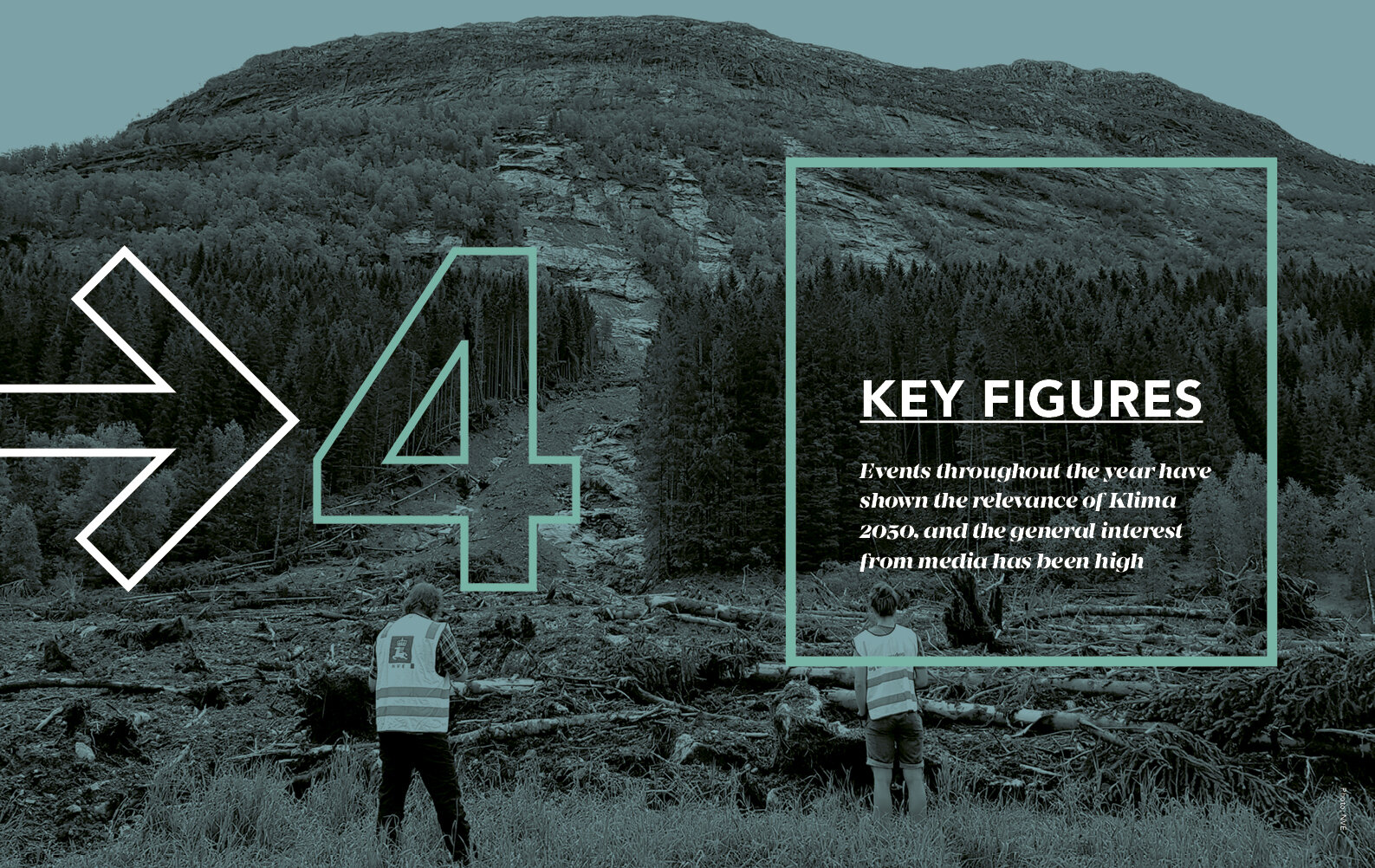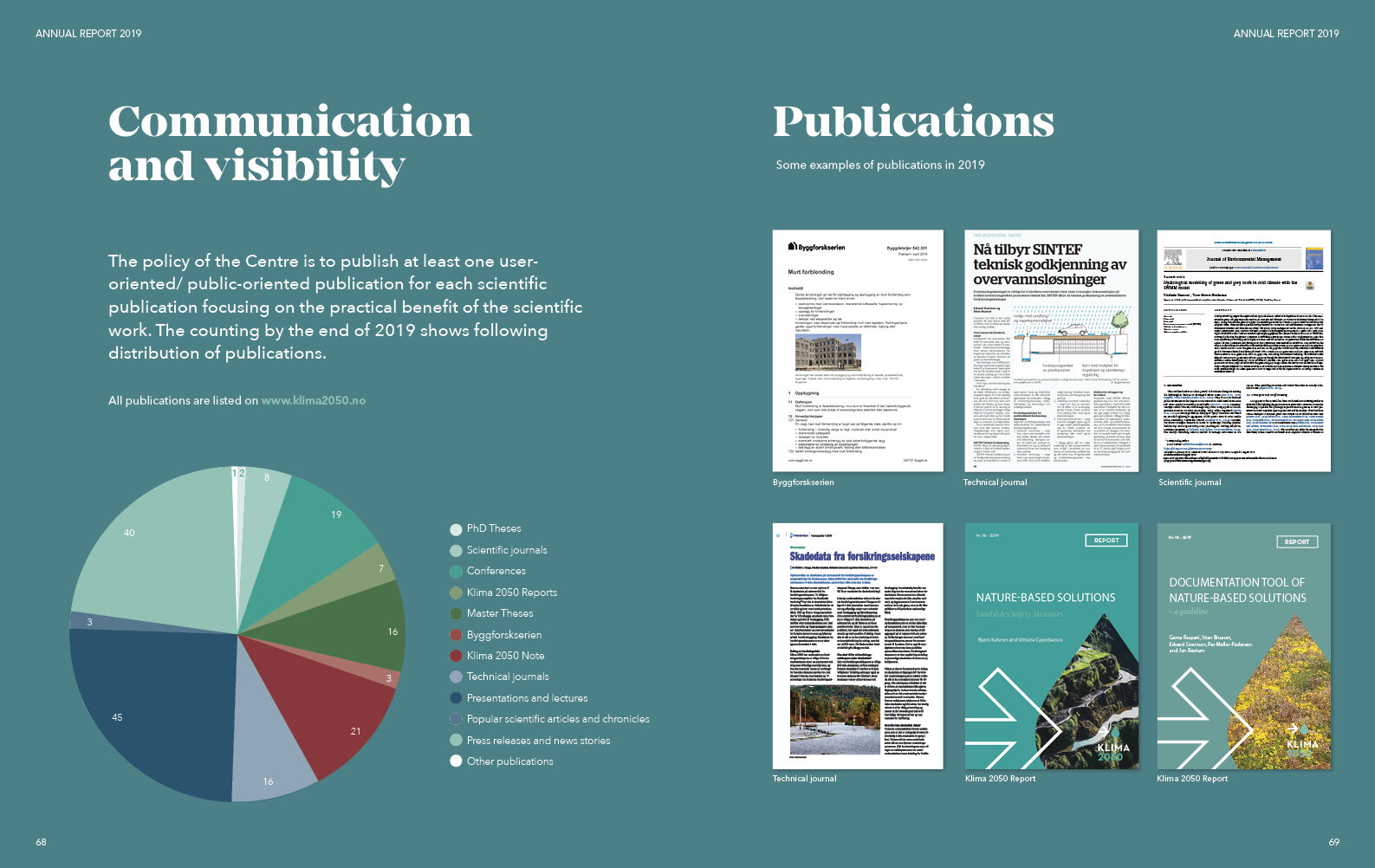Annual report 2019
A successful mid-way evaluation
The Research Centre Klima 2050’s ambitious goal is to reduce the societal risk associated with climate change due to an increased rainfall load in the built environment. The ambition requires solutions on several levels:
An exciting meeting and inspiring evaluation report. Tuesday 2 April 2019 was an exciting day for the Centre. The mid-way evaluation team met with the Board Chair, the Centre management team, partner representatives, postdoctoral and PhD Candidates, and representatives of SINTEF, the host. The Centre management team had completed a thorough self-assessment, and all partners had made their own evaluations of the Centre’s innovation achievement, its strengths and weaknesses, and lessons learned. The management team had also provided the evaluators with a complete list of deliverables and publications.
Innovation achievement. The evaluation team found that the website and Annual Reports were excellent in themselves. However, during the meeting it became clear to the evaluators that the full magnitude of the work carried out by, and achievements of, the Centre was significantly greater than that reported and demonstrated in external media. The evaluators thus encouraged us to improve our profiling of the totality of our research and innovation achievement. This can be accomplished by better dissemination in the public domain and international academic arenas, and by future research projects with new and existing partners.
Long-term investment in knowledge building. Assessments of the Centre by user partners demonstrated that the majority of these partners appreciate the research aspects of the Centre, highlighting its long-term investment in knowledge building. The Centre’s private sector user partners include companies that have either restructured themselves or have invested heavily in research as a consequence of opportunities offered by their collaboration with the Centre.
““The Centre leadership is excellent and the Centre is conducting internationally competitive research in response to user needs and has unique opportunities to be world leading by improving the scientific collaboration across research in the work packages”.”
Internationalisation. The evaluation team stated that the research profile of the Centre has attained a high level internationally, and that some aspects can be described as excellent. It also emphasised that the Centre’s research partners had succeeded in obtaining funding for five international spin-off projects. The level and quality of international activity is declared to be satisfactory, but there is scope for expansion, which could be important for the sustainability of the Centre, especially after termination of the SFI funding period.
Education and researcher training. The Centre’s approach to researcher training of its PhD Candidates is cited as an example of good practice. However, there is scope for improvement in terms of collaboration between PhD Candidates and user partners, and in reaping the mutual benefits that such collaboration creates. The Centre has successfully involved more than 70 M.Sc. students in its research activities, which have proved to be very popular among the students themselves.
Closing recommendations. In terms of the most recent period of Centre activity, the evaluation team has recommended that the Centre boost its multidisciplinary research approach across the work packages, and raise its ambitions with regard to both research and innovation. We were encouraged to have identified a range of means of maintaining the Centre’s activities aimed both at promoting end-user innovation as well as involvement in the global academic community in the long term.
We are grateful for the advice provided by the mid-way evaluation team, which has enabled us to prepare for our improvement work. We are confident that the report demonstrates that we are progressing.
Grethe Bergly, Multiconsult, Chair of the board

